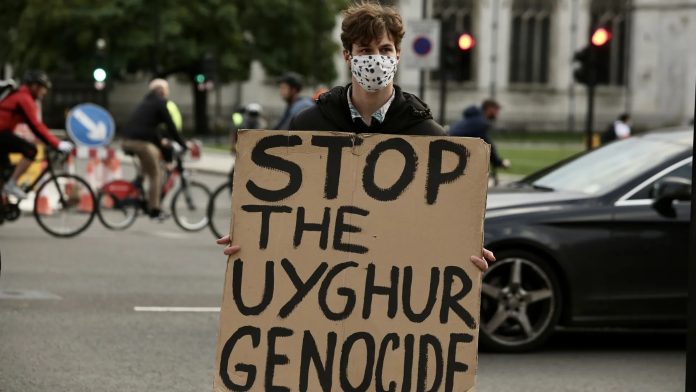The Uyghurs are a Turkic-speaking Muslim ethnic group that mainly live in the Xinjiang Uyghur Autonomous Region in northwest China. They are one of the 55 officially recognized ethnic minorities in China, but they face severe discrimination and repression by the Chinese government.
The Uyghurs have a rich and diverse culture, history, and religion, influenced by their interactions with various civilizations along the ancient Silk Road. They have their own language, script, literature, music, art, and cuisine. They practice a moderate form of Sunni Islam, blended with Sufi mysticism and local traditions.
However, the Uyghurs have also suffered from centuries of oppression, invasion, and colonization by different powers, such as the Mongols, the Qing dynasty, and the Republic of China. Since the establishment of the People’s Republic of China in 1949, the Uyghurs have been subjected to assimilation, sinicization, and marginalization policies that aim to erase their distinct identity and culture.
The Chinese government claims that Xinjiang is an inseparable part of China, and that the Uyghurs are a loyal and grateful minority. However, many Uyghurs resent the Chinese rule and the influx of Han Chinese settlers, who now outnumber the Uyghurs in some areas. Some Uyghurs have sought greater autonomy, cultural rights, or even independence for their homeland, which they call East Turkestan.
The Chinese government has responded with harsh crackdowns, labeling any form of dissent or resistance as terrorism, separatism, or extremism. Since 2009, when ethnic riots erupted in the regional capital of Urumqi, the Chinese authorities have intensified their security and surveillance measures in Xinjiang, creating a climate of fear and intimidation.
The situation worsened in 2016, when Chen Quanguo, a hardline official known for his repressive policies in Tibet, was appointed as the party secretary of Xinjiang. Under his rule, the Chinese government launched a sweeping campaign of “de-extremification” and “re-education” in Xinjiang, targeting the Uyghurs and other Muslim minorities.
According to credible reports by human rights groups, media outlets, and researchers, the Chinese government has detained more than one million Uyghurs and other Muslims in a vast network of internment camps, where they are subjected to indoctrination, torture, and abuse. The detainees are forced to renounce their religion, language, and culture, and to pledge loyalty to the Chinese Communist Party and its leader, Xi Jinping. Many have died or disappeared in the camps, while others have been sentenced to long prison terms or transferred to forced labor factories.
The Chinese government has also imposed draconian restrictions on the Uyghurs’ daily lives, such as banning or regulating their religious practices, dress, names, education, travel, and communication. The authorities have destroyed thousands of mosques, shrines, and cemeteries, and replaced them with surveillance cameras, police stations, and propaganda banners. The authorities have also implemented a mass surveillance system, using facial recognition, biometric data, artificial intelligence, and mobile apps, to monitor and control the Uyghurs’ movements, activities, and thoughts.
The Chinese government has also carried out a campaign of demographic engineering, aiming to reduce the Uyghur population and dilute their ethnic identity. The authorities have implemented coercive birth control measures, such as forced sterilization, abortion, and intrauterine devices, on Uyghur women, resulting in a sharp decline in their fertility rate. The authorities have also separated Uyghur children from their families, and placed them in state-run orphanages, boarding schools, or Han Chinese households, where they are indoctrinated and assimilated.
The Chinese government has denied or downplayed the allegations of human rights violations in Xinjiang, and has portrayed its policies as necessary and benevolent measures to combat terrorism, poverty, and extremism. The government has also restricted access to Xinjiang for independent observers, journalists, and diplomats, and has retaliated against critics, whistleblowers, and activists, both inside and outside China.
The international community has expressed growing concern and condemnation over the situation in Xinjiang, and has called for an end to the atrocities and accountability for the perpetrators. Several countries, such as the United States, Canada, the United Kingdom, and the European Union, have imposed sanctions, visa bans, and trade restrictions on Chinese officials and entities involved in the abuses. Some countries, such as the United States and Canada, have also declared that the Chinese government’s actions in Xinjiang constitute genocide and crimes against humanity.
The Uyghurs are a persecuted minority in China, who are facing an unprecedented assault on their human rights, dignity, and existence. They are in urgent need of international solidarity and support, as well as effective and coordinated actions to stop the genocide and to secure their freedom and justice.


